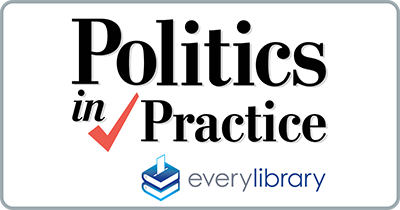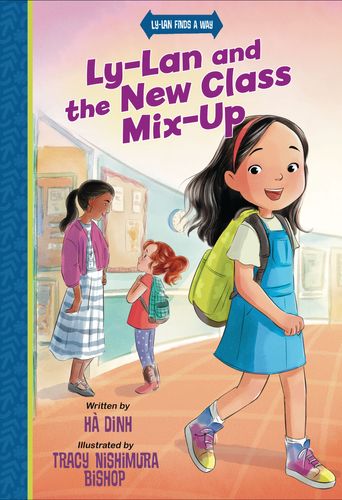Talking with the Class of ’99 about Censorship at their School
Mobilizing Alumni Networks for School Library Advocacy
High school alumni are a potentially useful group for advocating about school library issues and initiatives. While some alumni have left your area, many towns and neighborhoods continue to have well-established networks of local graduates who can be mobilized for advocacy. With the current fight over censorship and book bans not showing signs of slowing down, smart library advocates must think differently about power-building and coalition work. What could happen in your town if you could leverage the collective influence and resources of its graduates?
Imagine that the school gym is decorated to celebrate the 25th anniversary of the Class of 1999. The room buzzes with excitement as former classmates, now in their early forties, reconnect and share stories about their careers, families, and life experiences. Janet S., a member of the Class of 1999 and a school booster, steps up to the microphone to address the attendees.
“Good evening, Class of 1999! It’s lovely to see so many familiar faces here today as we celebrate our 25th reunion. Tonight, as you catch up with old friends and reminisce about our time here, I want to take a few moments to talk about something incredibly important that has been affecting our school – and many others – since we graduated.
You might remember our school librarian, Mrs. Johnson. She dedicated over 30 years of her life to this school, creating a library that was a safe haven for many of us—a place where we explored new worlds through books, engaged in stimulating discussions, and found resources that supported our academic and personal growth. Unfortunately, Mrs. Johnson was fired last month for standing up for the right of all students to read freely in our school library. Her dismissal is a stark reminder of the challenges readers face today.
Since we graduated, there has been a troubling increase in censorship and book bans in schools across the country. These bans often target books that explore diverse perspectives, discuss complex social issues, or simply challenge the status quo. Many of these books promote understanding and empathy, featuring protagonists from various backgrounds, including LGBTQ+ characters and people of color.
We have come far as a society since we graduated in 1999. Society is becoming more tolerant. We can talk about race in new ways, and gay marriage is legal. These changes are progress toward a more inclusive society. But the effects of censorship are deeply troubling and negate that progress. Students today are being denied the opportunity to read books that reflect their own experiences or open their eyes to the experiences of others.
As alumni of this school, we have a unique and powerful voice. We are now parents, community leaders, and professionals who understand the value of education and the importance of reading. For many of us, the school library was a place of discovery and growth. If we don’t take a stand now, the next generation of students could lose access to books that help them develop into well-rounded individuals.
The rise of censorship and the attempts to criminalize librarians for doing their jobs are attacks on the very heart of what our school stands for. As graduates of this school, your voice in defending students’ rights to read and access books carries a lot of weight. If you believe in freedom, use your voice to advocate for academic freedom. Write letters to the school board, attend meetings, and share your support on social media.
If we don’t act now, we risk allowing a small, vocal minority to dictate what is available in our school libraries. The consequences of inaction are dire. Let’s make the next decade one of positive change and support for our school’s library and our students’ rights.”
Unactivated Alumni
Alumni who are engaged in political or civic activities are well-positioned to participate in advocacy efforts. Graduates can be organized to help advance policy positions that benefit the broader learning community, including the support of school libraries. Strategic communication is crucial for effective advocacy. Engaging alumni through targeted communications highlighting the importance of school libraries and the specific issues they face maintains engagement and keeps the momentum of advocacy.
By applying these strategies, school library advocates can tap into the valuable resources and networks that alumni provide. This shared commitment to the institution can drive positive change, ensuring that every student has access to the resources they need to succeed.
Filed under: News
About John Chrastka
EveryLibrary’s founder is John Chrastka, a long-time library trustee, supporter, and advocate. John is a former partner in AssociaDirect, a Chicago-based consultancy focused on supporting associations in membership recruitment, conference, and governance activities. He is a former president and member of the Board of Trustees for the Berwyn (IL) Public Library (2006 – 2015) and is a former president of the Reaching Across Illinois Libraries System (RAILS) multi-type library system. He is co-author of “Before the Ballot; Building Support for Library Funding.” and “Winning Elections and Influencing Politicians for Library Funding”. Prior to his work at AssociaDirect, he was Director for Membership Development at the American Library Association (ALA) and a co-founder of the Ed Tech startup ClassMap. He was named a 2014 Mover & Shaker by Library Journal and tweets @mrchrastka.
ADVERTISEMENT
ADVERTISEMENT
SLJ Blog Network
One Star Review Guess Who?
A Foolish Interview for a Foolish Biography: Wolverton Hill (a.k.a. Barry Wolverton) Talks Lear
Detectives These Days Are Crazy!, vol. 1 | Review
Heavy Medal Suggestions: 73 Titles and Counting
ADVERTISEMENT





